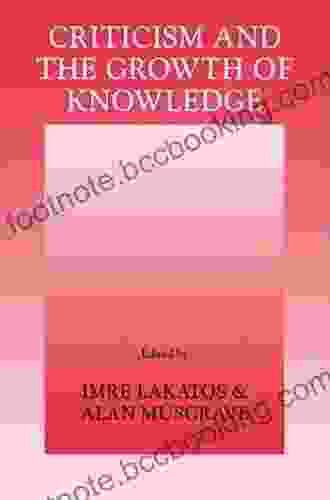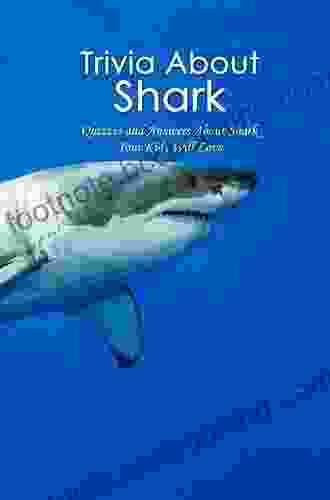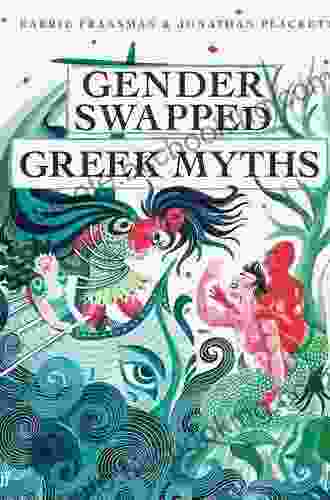Criticism and the Growth of Knowledge: Uncover the Path to Intellectual Progress

In the pursuit of knowledge, criticism serves as an indispensable catalyst, fueling intellectual growth and shaping our understanding of the world. Through the process of questioning, analyzing, and evaluating ideas, we refine our knowledge, uncover new perspectives, and drive progress in various fields of inquiry.
4.7 out of 5
| Language | : | English |
| File size | : | 781 KB |
| Text-to-Speech | : | Enabled |
| Enhanced typesetting | : | Enabled |
| Word Wise | : | Enabled |
| Print length | : | 292 pages |
| Screen Reader | : | Supported |
The Role of Criticism in the Scientific Method
In the scientific realm, criticism plays a pivotal role in the advancement of knowledge. By subjecting scientific theories and hypotheses to rigorous scrutiny, researchers identify flaws, inconsistencies, and areas for improvement. This process ensures the reliability and validity of scientific findings, leading to a more accurate and comprehensive understanding of natural phenomena.
One notable example of the impact of criticism in science is the case of the heliocentric theory. Initially proposed by Copernicus, this theory challenged the prevailing geocentric model of the solar system. Through critical examination, scientists eventually dismissed the geocentric theory in favor of the heliocentric model, which has since become the accepted scientific understanding of our solar system.
Criticism in the Humanities and Social Sciences
Beyond the realm of science, criticism also plays a significant role in the development of knowledge in the humanities and social sciences. Literary criticism analyzes literary works, unraveling their themes, structures, and meanings. Historical criticism examines historical events and documents, verifying their accuracy and providing context. Social and cultural criticism explores societal structures, norms, and values, fostering critical thinking and challenging preconceived notions.
For instance, feminist criticism has been instrumental in highlighting gender biases and inequalities in society, leading to greater awareness and progress towards social justice. Critical race theory has brought to light racial disparities and systemic racism, prompting conversations about structural inequalities and the need for systemic change.
Benefits of Critical Inquiry
Engaging in critical inquiry offers numerous benefits for intellectual development:
- Cognitive Flexibility: Criticism challenges fixed beliefs and encourages open-mindedness, leading to a more flexible and adaptable mindset.
- Enhanced Reasoning Skills: By critiquing arguments and ideas, we strengthen our analytical and logical reasoning abilities, enabling us to make more informed judgments.
- Improved Communication Skills: Critical inquiry fosters clear and concise communication, as it requires precise articulation of arguments and perspectives.
- Increased Knowledge Acquisition: Engaging with diverse perspectives and being open to criticism helps us expand our knowledge base and embrace new ideas.
- Intellectual Humility: Recognizing the limitations of our own knowledge and the value of criticism promotes intellectual humility, fostering a desire for continuous learning.
Criticism is an indispensable tool in the pursuit of knowledge. It challenges assumptions, uncovers flaws, and pushes the boundaries of our understanding. By embracing criticism, we foster intellectual growth, refine our knowledge, and contribute to the advancement of knowledge across various disciplines. Whether in the sciences, humanities, or social sciences, criticism serves as a catalyst for progress and a path towards a more enlightened and informed society.
4.7 out of 5
| Language | : | English |
| File size | : | 781 KB |
| Text-to-Speech | : | Enabled |
| Enhanced typesetting | : | Enabled |
| Word Wise | : | Enabled |
| Print length | : | 292 pages |
| Screen Reader | : | Supported |
Do you want to contribute by writing guest posts on this blog?
Please contact us and send us a resume of previous articles that you have written.
 Book
Book Novel
Novel Page
Page Chapter
Chapter Text
Text Story
Story Genre
Genre Reader
Reader Library
Library Paperback
Paperback E-book
E-book Magazine
Magazine Newspaper
Newspaper Paragraph
Paragraph Sentence
Sentence Bookmark
Bookmark Shelf
Shelf Glossary
Glossary Bibliography
Bibliography Foreword
Foreword Preface
Preface Synopsis
Synopsis Annotation
Annotation Footnote
Footnote Manuscript
Manuscript Scroll
Scroll Codex
Codex Tome
Tome Bestseller
Bestseller Classics
Classics Library card
Library card Narrative
Narrative Biography
Biography Autobiography
Autobiography Memoir
Memoir Reference
Reference Encyclopedia
Encyclopedia Katie Tsang
Katie Tsang Ingrid Fetell Lee
Ingrid Fetell Lee Frederic Gosset
Frederic Gosset Kurt Timmermeister
Kurt Timmermeister Mark William
Mark William Ken Youens Clark
Ken Youens Clark Gary Sutherland
Gary Sutherland William Kilbourn
William Kilbourn Hawys Morgan
Hawys Morgan Jonathan Nicholas
Jonathan Nicholas Sussan England
Sussan England Stephen Young
Stephen Young Kelly Sheldrick
Kelly Sheldrick Tom Phelan
Tom Phelan Francesca Castaldi
Francesca Castaldi Keith Hatschek
Keith Hatschek Suze Solari
Suze Solari Florence Witkop
Florence Witkop James Koeper
James Koeper Frank White
Frank White
Light bulbAdvertise smarter! Our strategic ad space ensures maximum exposure. Reserve your spot today!
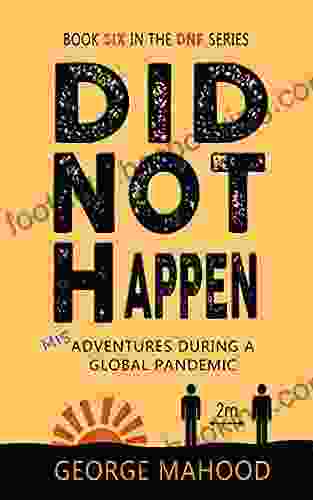
 Ernest ClineMisadventures During Global Pandemic: A Literary Escape from the Mundanity of...
Ernest ClineMisadventures During Global Pandemic: A Literary Escape from the Mundanity of...
 Danny SimmonsUnveiling the Extraordinary Story: How an Outcast Driver, American Heiress,...
Danny SimmonsUnveiling the Extraordinary Story: How an Outcast Driver, American Heiress,... Owen SimmonsFollow ·12.8k
Owen SimmonsFollow ·12.8k Corbin PowellFollow ·13.8k
Corbin PowellFollow ·13.8k Gabriel HayesFollow ·6.2k
Gabriel HayesFollow ·6.2k Abe MitchellFollow ·3.2k
Abe MitchellFollow ·3.2k Damon HayesFollow ·8.6k
Damon HayesFollow ·8.6k Gerald ParkerFollow ·19k
Gerald ParkerFollow ·19k Ernest ClineFollow ·16.3k
Ernest ClineFollow ·16.3k Elmer PowellFollow ·15.6k
Elmer PowellFollow ·15.6k
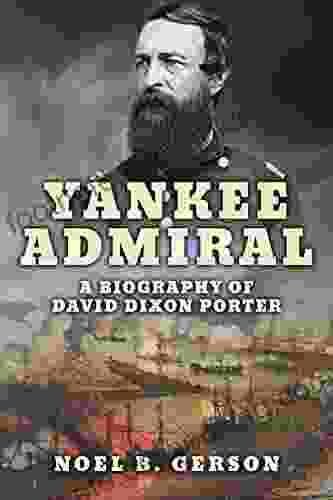
 Howard Blair
Howard BlairHeroes and Villains from American History: The Biography...
David Dixon...

 Felipe Blair
Felipe BlairAn Informal History of the 1920s: Uncovering the Roaring...
The 1920s, an era...

 Howard Blair
Howard BlairHow a Peculiar Victorian Zookeeper Waged a Lonely Crusade...
In the enigmatic world of Victorian...
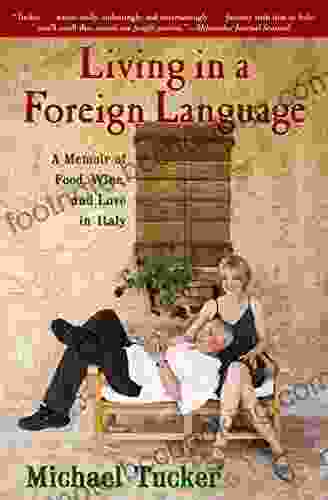
 Harold Powell
Harold PowellMemoir of Food, Wine, and Love in Italy: A Culinary...
Prepare your senses...
4.7 out of 5
| Language | : | English |
| File size | : | 781 KB |
| Text-to-Speech | : | Enabled |
| Enhanced typesetting | : | Enabled |
| Word Wise | : | Enabled |
| Print length | : | 292 pages |
| Screen Reader | : | Supported |


